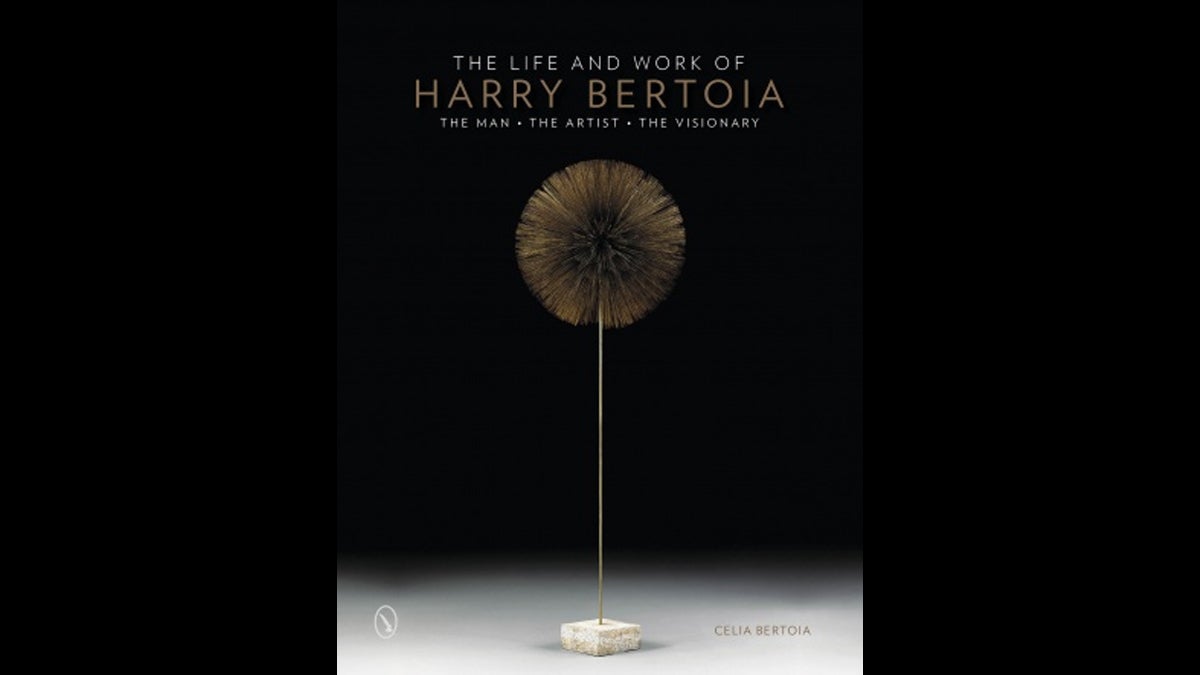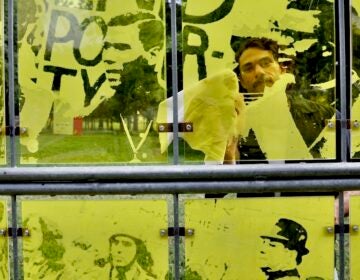Daughter chronicles Bertoia’s artistic journey from shaping metal to awakening its sound
Listen
Artist Harry Bertoia was fascinated by metal. His interest took him from making jewelry to designing furniture to creating sculpture.
His life seemed determined by serendipity. Coming of age in rural Italy in the 1930s, he received the unlikely opportunity to study art in Detroit, where an older brother had immigrated.
Just as unlikely was the offer to morph from a jewelry maker into a furniture designer for the iconic team of Charles and Ray Eames. An offer from another manufacturer brought him to Pennsylvania and gave him the means to leave the commercial world to explore his true love.
This year marks the centennial of his birth, and, to commemorate, his daughter Celia Bertoia has written his biography. In “The Life and Work of Harry Bertoia,” she recounts how another chance episode led to the next, and final phase of his life’s work.
“He had learned how to weld, and he was always making different wire structures. And he happened to be working with pieces of wire, and, accidentally, one broke off and it hit another couple of rods and made this wonderful pinging sound,” she said. “And he thought, if two rods sound like that, I wonder what 10 or 20 or a hundred rods pinging together would sound like?
That was the genesis of Bertoia’s sound sculptures.
“He began to make these structures with a flat base and simple vertical rods coming up, that were flexible enough to move in the wind or be touched by fingers and make a chiming sound,” his daughter continued.
From the sound sculptures to architectural installations, his early jewelry and his furniture designs, Bertoia was prolific over his long career. But Celia Bertoia said widespread fame was never on his mind.
“He never signed his work and rarely titled his work because he felt his creativity was coming from some divine source outside himself,” she said. “He really felt, why should he take credit, when it was from a higher source?”
That can be a problem for curators and collectors.
Lisa Hanover, president of the Michener Art Museum in Doylestown, curated a 2013 exhibit called “Harry Bertoia: Structure and Sound.”
“People come out of the woodwork when you mention Bertoia. ‘I’ve got a Bertoia. I’ve got a Bertoia. I RUINED a Bertoia because I didn’t know what I had.
“But among the pantheon of American sculptors, he’s right up there,” Hanover said.
Celia Bertoia hopes to end that anonymity with her book. It lovingly chronicles her father’s life, ideas and artwork, with a detailed look at those unique sound sculptures.
“It’s not only visual. They’re elegant, but it’s textural. You feel them with your fingers and it’s auditory, you hear the sounds,” she said. “And if it’s on a wooden floor, you actually feel the vibrations coming through the floor.
“The Life and Work of Harry Bertoia” has been released by Schiffer Publishing. Later this year, Important Records will reissue a series of recordings Harry Bertoia made of his sound sculptures.
WHYY is your source for fact-based, in-depth journalism and information. As a nonprofit organization, we rely on financial support from readers like you. Please give today.




